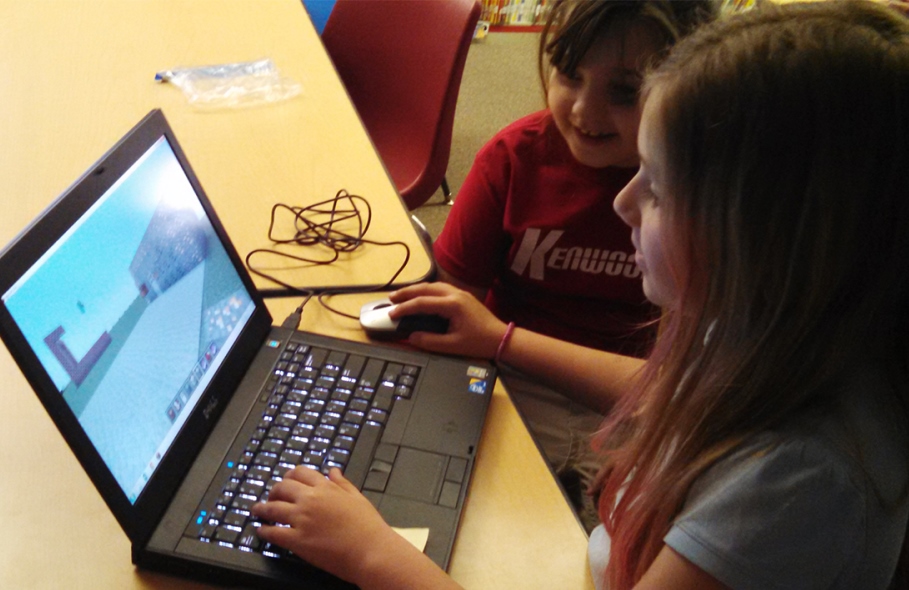Project embeds computer science lessons in math instruction for K-5 students
by Sharita Forrest / Feb 2, 2016

A two-year project funded by the National Science Foundation is laying the groundwork for meeting society’s growing demand for citizens literate in computer science by integrating computing with elementary school mathematics—an approach that holds promise for democratizing access to computer science education and promoting diversity within the U.S. technology workforce.
Maya Israel, an assistant professor in the Department of Special Education, is a co-principal investigator on the grant. She is collaborating with researchers at Illinois and faculty and students at Champaign Unit 4 Schools. In addition, the Track 1 Exploratory Integration Project is a collaborative partnership among researchers at the University of Chicago.
A main objective of the work at Illinois is the development of research-based learning trajectories for each grade level that articulate the learning goals, the developmental paths to achieve them, and possible activities that will help students acquire the necessary knowledge and skills in each discipline.
To jump-start that process, K-5 teachers at Kenwood Elementary School in Champaign are developing new learning modules that embed computer science instruction within the Everyday Mathematics curricula currently used at the school.
“Providing enriching early experiences is really critical,” said Israel, who oversees data collection and analysis for the Track 1 project and advises on content development for struggling learners.
George Reese, director of the Office of Mathematics, Science and Technology Education at Illinois, said that computing education is equivalent to literacy nowadays, which makes such learning crucial to as many students as possible. He added that the way kids learn math can apply to their learning in computing.
“We know that kids learn best,” he said, “when they’re allowed to engage in social learning around big ideas.”
The research team also plans to develop a website so that educators, researchers, and other interested parties can explore and download the integrated curricula, sample tasks, assessments, and other instructional resources related to computer science education, Israel said.
Read the full article by Sharita Forrest of the Illinois News Bureau.